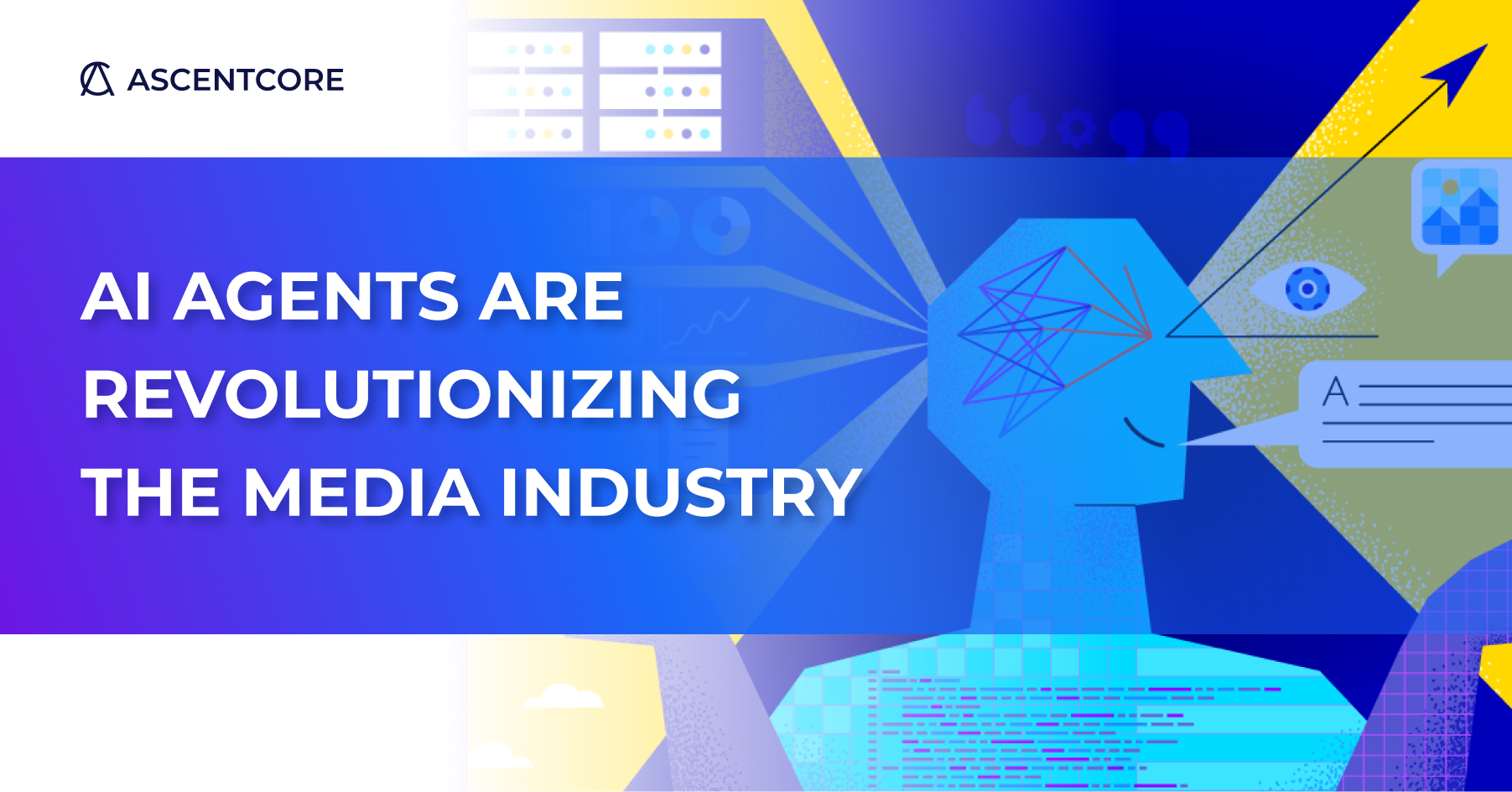The media industry is witnessing a shift driven by the rise of AI agents – autonomous, intelligent systems capable of performing complex tasks with minimal human oversight. These advanced tools are no longer just futuristic concepts, they’re actively reshaping how content is created, distributed, and consumed.
The Rise of AI Agents
AI agents differ from traditional chatbots by their ability to independently execute multi-step processes, adapt to real-time changes, and collaborate with other systems. In the media world, this translates to a powerful toolkit for tackling everything from content production to audience analytics. Unlike traditional computer programs that depend heavily on fixed instructions, AI agents can operate without strictly predefined rules.
They dynamically interpret their environment, allowing them to handle complex and unpredictable situations more effectively. Even though their responses aren’t always perfectly accurate, they can identify their own errors and adapt their strategies as they go, learning and improving continuously.
Big companies like OpenAI, Google, and Microsoft have rolled out next-generation agents—think OpenAI’s “Operator” (slated for early 2025) or Google’s Gemini-powered agents that can autonomously browse the web, generate content, and even manage dynamic workflows.
Enhancing Audience Engagement
Apple, with its upgraded Siri integration in 2025, is turning devices into hubs for managing media consumption. Imagine asking your phone to curate a playlist of news clips based on your morning commute time. Spotify’s AI DJ takes a similar tack, blending music with personalized audio news.
But it’s not just about keeping viewers happy. AI agents are also helping media companies understand their audiences better. By analyzing real-time data: clicks, shares, even emotional reactions to content, agents provide insights that shape editorial strategies.
In a crowded digital space, knowing what cuts through the noise is gold. An AI agent can effectively analyze individual user behavior to uncover meaningful patterns, summarize the content viewed, and accurately categorize users based on their interactions. This capability enables organizations to gain deeper insights into their clients’ needs, interests, and browsing habits, ranging from high-level trends to detailed behavioral patterns. By understanding user preferences and activity more comprehensively, businesses can better tailor their offerings, improve user experience, and deliver highly personalized content and recommendations.
As Deloitte’s 2025 Predictions Report suggests, a quarter of companies using generative AI are already piloting agents, with that number expected to double by 2027.
Streamline Operations
Beyond production, AI agents are transforming operational efficiency. In newsrooms, they’re being used to coordinate real-time updates, pulling data from multiple sources to keep stories fresh and accurate. For example, an agent might monitor breaking news, cross-check facts across platforms, and draft initial reports for human editors to refine.
This speed is critical in an era where audiences demand instant updates. One key advantage of AI agents is their ability to verify information across different environments. They can scan various platforms, databases, and archives to check if the same information exists elsewhere, ensuring consistency and spotting discrepancies. By cross-referencing data, these agents fact-check and validate content, flagging potential errors or misinformation before it reaches the public, which enhances credibility and trust.
Companies like Oracle, with its Miracle Agent suite, are automating backend processes. Tools like Otter.ai are supercharging this, turning live audio into text instantly, while Descript’s AI chops hours off editing for podcasts and video reports.
Closing Thoughts: : The Future Is Agentic
As Google CEO Sundar Pichai has called it, we’re entering the “agentic era,” and for the media industry, that means a bolder, smarter, and more responsive future. AI agents are no longer just tools – they are partners in the media ecosystem, driving efficiency, creativity, and connection. Whether it’s a news outlet using an agent to break stories faster or a streaming platform crafting personalized binge-worthy experiences, these technologies are redefining what’s possible.
Software development is evolving toward assembling specialized agents capable of performing multiple tasks simultaneously, ushering in a new paradigm of efficiency and coordination. This shift has given rise to a distinct branch of software engineering, called AI agent development, which diverges from traditional software development by focusing on creating autonomous, intelligent systems that adapt and collaborate in real-time.
Discover how our cutting-edge AI solutions can keep you ahead in this dynamic era by exploring our tailored solutions for the media industry!



